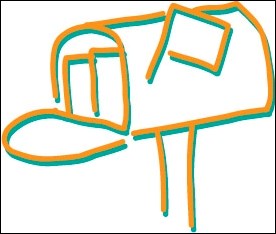Dear Editor
For a while, there were jokes about Canadians supposedly ending every sentence with “eh,” which we don’t. It was called a Canadianism. ‘Tisn’t. It’s from England, particularly the Midlands and the North.
I was raised surrounded by transported English people and they used “Ey” (the English interjection’s spelling) in a meaningful way, not just to end a sentence. I wish everyone could hear the inflections, but I’ll try to explain on paper.
I have five different meanings:
1. “These can go tomorrow, ey?” Meaning: Is that acceptable?
2. “Ey!” said short and sharp. Meaning: You uncouth person who has stood on my toe and not apologized.
3. There’s there warning, “Ey,” rather drawn out and rising up at the end, directed at children, and sometimes adults, with the right facial expression. It was used on me as a child.
4. The drawled “Ey?” coming from someone reading a book, for example when they finally realize someone is talking to them. Our family had a lot of those.
5. There’s the unbelieving “Ey,” rising up at the end in a startled manner coming from someone whose been told your cousin married someone quite unbelievable.
I recently re-read a mystery novel by Lorac, English, of course, in which he wrote, or I should say, had a character say, “… just as John Staple turned round with an inquiring ‘Ey …?’ – that aggregate of vowels uttered in such varying tones by all good Lancastrians.”
It’s all in the inflection.
So there, ey?
Christine Pike
Waseca




